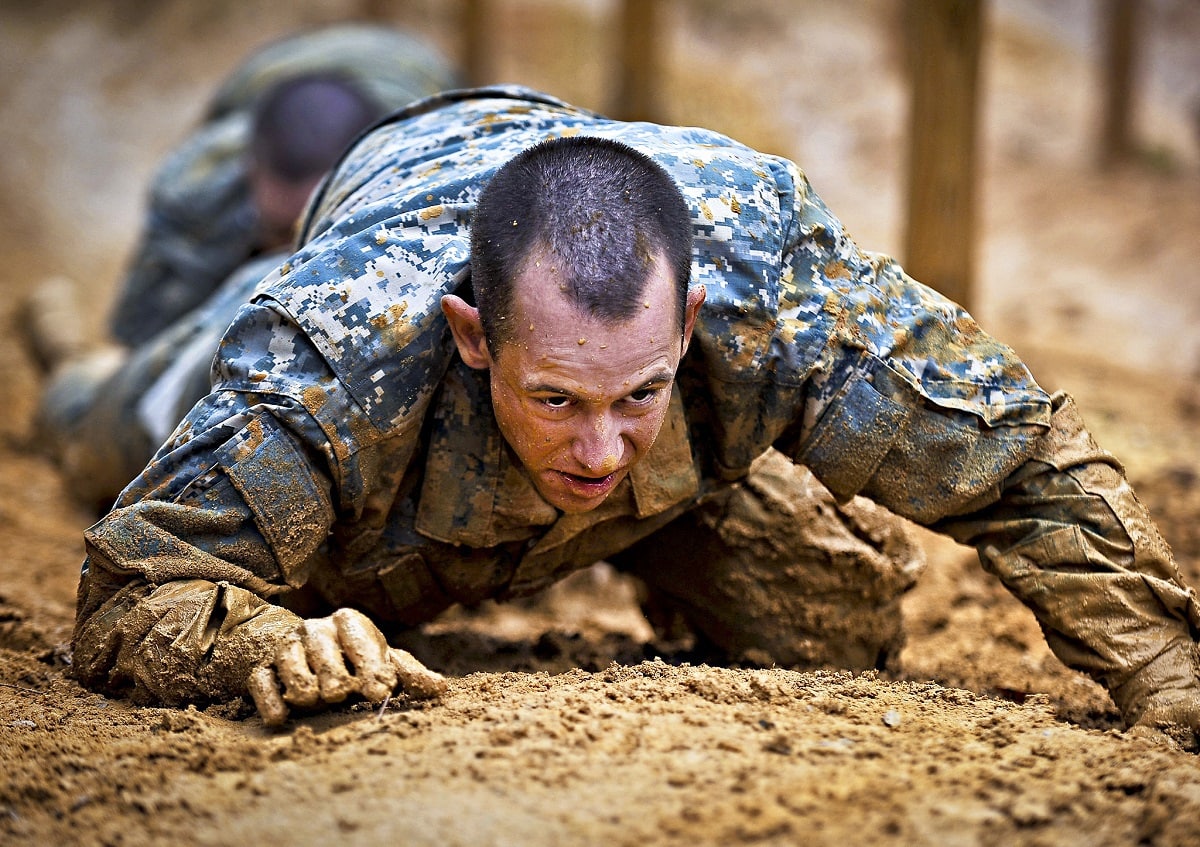Alex Hollings, a former member of the U.S. Marines, leverages his expertise to explain what happens if you get hurt in basic training:
Regardless of which military branch you choose to join, there’s a chance you could end up getting hurt during basic training. While drill sergeants and instructors work hard to keep their recruits and trainees safe, the nature of arduous physical activity and training for combat comes with some degree of risk.
More often than not, if you get hurt at basic training, you’ll be able to nurse the injury back to health while still training alongside your platoon or group. Sometimes, however, you may be sent to another unit, like a rehabilitation batallion, until you can get back on your feet.
The most common ways to get hurt at basic training are all in your legs
According to Army Capt. Lydia Blondin, assistant chief of physical therapy at the General Leonard Wood Army Community Hospital at Fort Leonard Wood, Missouri, the most common types of injuries sustained at basic training are to the lower extremities (in other words, your legs).
Most of the time, these injuries are relatively minor-like twisted ankles or muscle strains. However, more serious injuries can come as a result of this rapid transition to high levels of physical activity. Some recruits or trainees see stress fractures develop. Others may see injuries to ligaments, including tears that may require surgery to recover from (ACL, for instance, is a common ligament tear among athletes).
What happens if you get hurt while you’re at basic training?
If you get hurt at basic training, the first thing you should do is notify your drill sergeant or instructor. They’re trained in basic first aid and, if your injury isn’t severe, they may be able to get you patched up and back with the group quickly. However, if your injury is worse than a scrape or small cut, they’ll most likely contact medical personnel to come assess you and determine the best course of treatment.
The severity of the injury will really dictate what happens next. If your injury is a muscle strain or something similar, you may be given the chance to rest up in your squad bay or quarters for a day or two while your platoon or group continues training. After a bit of rest, you would then rejoin your group to continue with the training schedule.
However, if you get hurt in a way that will require weeks or longer to recover enough to continue training, one of two things will happen next.
If your injury needs a lot of time to recover, you’ll be sent to a Rehabilitation Battalion or something similar
If you break a bone, need surgery, or are too hurt at basic training to rest and recover in a few days, chances are good that you’ll be transferred out of your platoon or training group and placed in a medical platoon for longer-term care.
During this time, you’ll still need to adhere to most of the rules pertaining to recruits or trainees, but the environment itself can be quite a bit less chaotic and stressful. You’ll be attended to by professional medical staff who will help you get back on your feet as soon as possible so you can get back into training and graduate. However, it’s important to note that if you have to spend time in a medical group recovering, you may not be able to rejoin your original platoon or group. Instead, once you’ve recovered, you’ll be sent to a new group that’s is currently where you left off in the training cycle.
What happens if you get hurt at basic training and can’t continue?
The medical staff at your basic training facility will do everything they can to get you back up and running after you get hurt, but some injuries may bar you from continued service for a variety of reasons.
If you suffer a serious enough injury that you may not be able to effectively serve during your contract, the military may choose to medically separate you instead. If this happens, you’ll receive medical treatment for your injuries and then you’ll be processed out and sent home.
What can I do to avoid getting hurt at basic training?
Part of the reason people get hurt at basic training is the high degree of running and marching on rough terrain that’s inherent to the military, but many medical professionals also believe recruits get hurt as a result of transitioning quickly from a sedentary lifestyle to an extremely active one.
Fortunately, that’s something you can work on ahead of time if you’re reading this article. Start exercising before you ship out to basic training and you can minimize the chances that you’ll get hurt during the training cycle. Focus on strengthening your lower body by hiking and jogging now so it won’t be as difficult for you once you start training.
Alex Hollings is a writer, dad, and Marine veteran who specializes in foreign policy and defense technology analysis. He holds a master’s degree in Communications from Southern New Hampshire University, as well as a bachelor’s degree in Corporate and Organizational Communications from Framingham State University.

